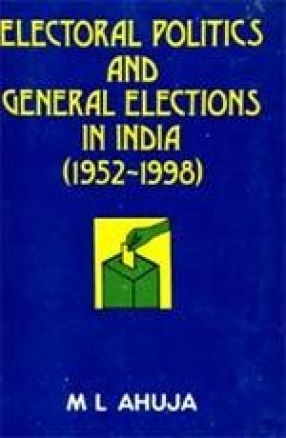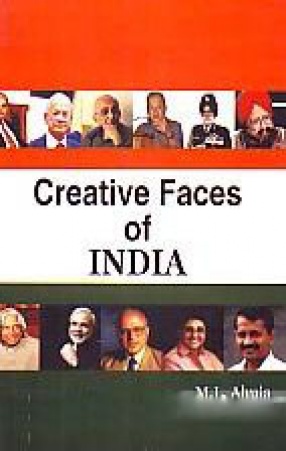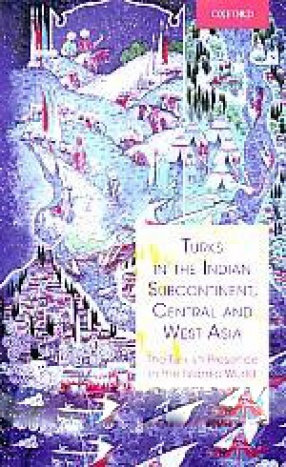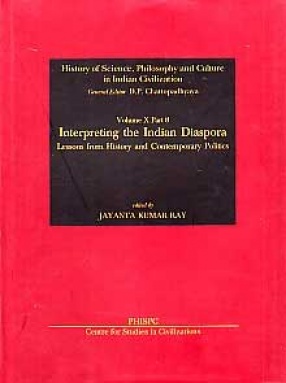Following the fractured mandate of the 12th General Elections in India in March 1998 the BJP government replaced the 13 party coalition of the United Front. But the first 100 days of the Government, which has been in the office of the basis of prepoll and post –poll alliances, have brought to focus trickly problems it has in the offing. The challenges seem to be tougher than those encountered by the United Front team as it struggled through it6s 18-month of existence. What have been the major factors which have catapulted the nation to such a situatin? This forms the subject matter of this book. It studies the subject in all its ramifications in the backdrop of all the proceding general elections which took place in India ever since it became Republic. The entire book is divided into six sections. Section I brings to focus the situation leading to the dissolution of 11th Lok Sabha just within 18 months of the last general elections. In separate chapters in this section the growth and effect of regional parties as well as the role of election Commission has been examined 32 chapters in Section II provide a glimpse of the electoral scene in all states and union teeritories, Section III surveys the programmes, activities, strategies and performance of 7 national and 169 State parties participated in the 12th General Elections. Section IV explains the background and circumstancies leading to the politicization of Women, Muslim and Dalit voters, the situation leading to the projection of Nehru-Gandhi family, and the use of the innovative means of campaigning. Section V deals with author’s assessment of the 1998 verdict, the functioning of democracy in India and 100 days experience of the new government. Section VI contains Appendices which includes information of great reference value. All this makes it a useful source book for understanding the modern-day politics in India. This should also serve as a valuable reference book for all political parties and persons engaged in electoral study.
Electoral Politics and General Elections in India: 1952-1998
by M L Ahuja
$25.20
$28.00
In stock
Free & Quick Delivery Worldwide
All orders amounting to US$ 50 or more qualify for Free Delivery Worldwide. For orders less than US$ 50, we offer Standard Delivery at $14 per book.
ABOUT THE AUTHOR M L Ahuja
M.L. Ahuja is Postgraduate in English Literature and holds two Postgraduates Diplomas ion Labour Law, Labour Welfare & Personnel Management, as well as in Company Secretary. Ranked among the outstanding intellectuals of the 20th century by the International Biographical Centre, Cambridge, Mr. Ahuja is the co-author of 1989-1991 General Election in India (1992), and is the author of Glimpses of Some Great Indians (1977). President of Indian and their Constitutional Portrayal (1977). Electoral Politics and General Elections in India, (1952-1988), and Handbook of General Elections & Electoral Reforms in India (2000). He has contributed articles to a number of journals, mostly on book publishing, marketing of books and marketing of journals. He has also reviewed books of general interest and has presented papers at seminars in India, Hong Kong, Papua New Guinea, China and Hungary. His article captioned “Vox Populi†is included in a book entitled presteroika in India: V.O. Singh’s Prime Ministership, complied and edited by G.S. Bhargava. Mr. Ahuja had also been the Area Representative of the International Association of Orientalist Librarians. He is associated with publishing and marketing of books and journals for over four decades. He has traveled extensively, both within and outside the country.
reviews
0 in total
Review by Anonymous
Be the first to review “Electoral Politics and General Elections in India: 1952-1998” Cancel reply
You must be logged in to post a review.
Bibliographic information
Title
Electoral Politics and General Elections in India: 1952-1998
Author
Edition
1st ed.
Publisher
ISBN
8170997119
Length
xvi+412p., Tables; Maps; Appendices; Index; 22cm.
Subjects
more by M L Ahuja see more
similar bookssee more
Turks in the Indian Subcontinent, Central and West Asia: the Turkish Presence in the Islamic World
For almost a millennium ...
$70.20
$78.00








There are no reviews yet.